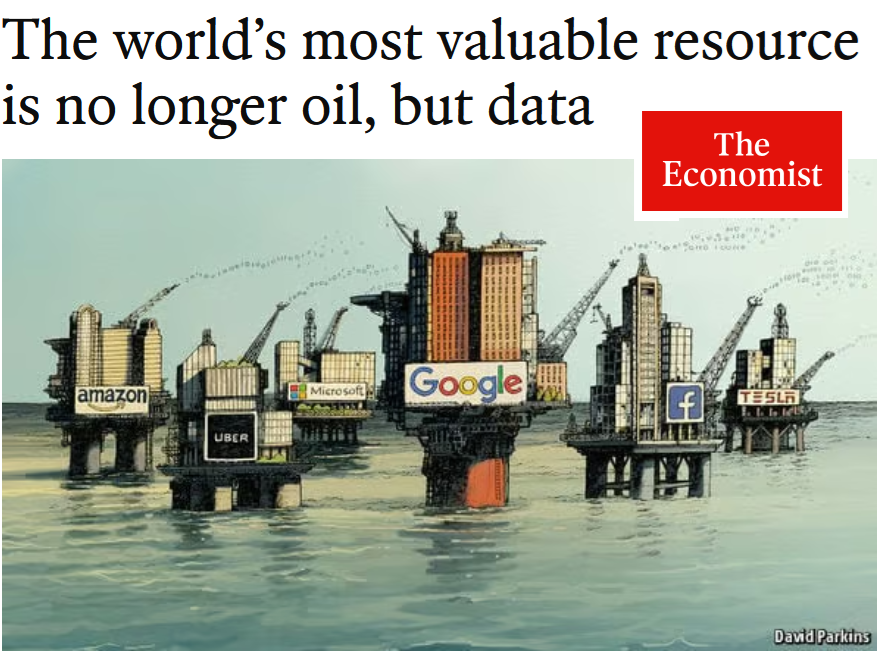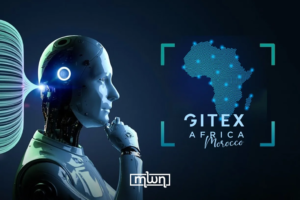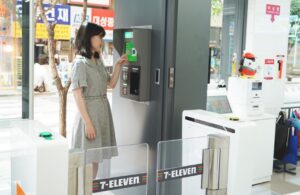Why Would Anybody Want My Data?

Cindy Niles, Zara Bourgeois – Human societies have had to relearn what remunerating labour has meant with successive industrial revolutions or ‘resets.’ There was a time when one had to hunt or gather his own food, build one’s own shelter, collect her own water and start her own fire. Villages formed, farming, division of labour and trade became the norm. Each TECHNOLOGICAL revolution removed us further from acting directly to acquire life’s sustaining sources.
There was a time in history when the idea of sitting at a desk pressing keys into a computer sounded a preposterous way to feed, clothe and shelter oneself.
There was a time when the concept of sitting in front of a phone camera, applying makeup, twinkling one’s fingers to signal the result and getting paid for it was akin to the delusions of a madman.
But we learned all that.
When social media platforms exploded onto the scene (Web 2.0) and data was proclaimed the ‘new oil,’ it was time to understand we had to pack our old notions of labour away to make room for the ‘new normal.’ A normal in which our existence would be regulated and sustained by machines.
For the machines to decide how to allocate the Earth’s natural resources, they require mountains of information and thus, a new economy is born: data is the new currency.
In order to perpetuate hierarchy, rank and competition, a scale of value needs to be programmed into the new mode of ‘making a living.’ We’ll no longer be counting heads of sheep shorn, barrels of hay rolled, number of jeans sewn or hours sat in an office chair to calculate one’s income. New terms, conditions and values need to be assigned to human activity if the machines replace human labour–that is where the moral framework of social credit (or behaviour accounting) fits into the new normal. Our blockchained, biometrically verifiable data harnessed by ubiquitous surveillance technologies is our new money. Digital work generates digital currency. That our ‘work’ is everyday behaviours and attitudes captured by sensing machines should not freeze our comprehension–don’t forget this is a complete overhaul of the financial system that defines the Fourth Industrial Revolution. Both human work and payment are being replaced because autonomous machines are replacing human labour.
Which attitudes and behaviours are worth penalty and which are worth reward is up to a bureaucracy that hides behind the machines that we can never access.
Raw granular data makes very little sense to the average consumer, because they lack the necessary insight, tools, computing capacity, market access and opportunities to make economic sense of fragmented data parcels in terms of monetizable commodity. Big Tech does have all of the above and more. Decades of grooming consumers and building digital “trust” is finally about to make the long-awaited breakthrough a reality. Offering/selling/trading user-generated data forfeits rights and ownership. At best you may see a tiny trickle down from the massive revenue streams diverted by the giants of tech industry in control of data labour markets.
In the Fourth Industrial Revolution human-centered data is the new exploitable commodity, just like oil was in the previous economic iteration.
In terms of oil production: the average person’s energy needs depend on the availability, access and affordability of certain class of natural resources. That being said the little guy has no rights, tools and capacity to mine the source. Society depends on industries and businesses with scalable capacity to acquire access rights, technological means, develop infrastructure, refineries, products, secure markets and reliable distribution channels. We all need oil, but only as a final product.
This principle applies to data. Raw granular data requires massive quantums of energy and computational power to sustain the engine of the digital economy. The little guy is just a node in the machine, their survival tied to offering their precious data to the tech masters for a few tokens in return.
TGSN is your premier international newswire with unparalleled access to global news sources. TGSN delivers comprehensive coverage for a truly connected world. At TGSN we welcome freelance reporters, researchers and citizen journalists. For more information, read this page.
TGSN is reader-funded, support TGSN. See details:
SOL Address:
Ag7gcWyz53asFxnMrKg8LrZ4ZD2XzfNiUGnnBduJqJuz
ETH Address:
0xBf5182628c90FDAeAcbac3510172523d05b2C4Ff
BTC Address:
bc1qlldkq539v5ysye365av2md8wrxhshcr7kuql5w



